La
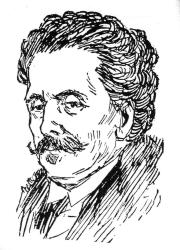
Labriola, Antonio (1843-1904)
Italian philosopher and socialist, father of Italian Marxism.
Labriola was born in Cassino in 1843. He studied Hegelian philosophy at the University of Naples under Bertrando Spaventa, who saw in the new Italian State the realization of the Hegelian ideal. Spaventa’s brothers Bertrando and Silvio were also typical exponents of the historical right, liberal but not democratic.
Labriola’s first published work was a critique of Zeller (a teacher of Greek philosophy at the University of Heidelberg), clearly inspired by Bertrando Spaventa’s Hegelianism. After studying under A. Tari, F. De Sanctis and B. Spaventa at the University of Naples, Labriola abandoned orthodox Hegelianism, writing in 1869 a sharp criticism of the Hegelian A. Vera’s Lectures on the Philosophy of the History.
Between 1870 and 1874 (before the fall of the Right), Labriola wrote for liberal political journals, such as Gazzetta di Napoli, Il Piccolo, L‘Unità Nazionale and Monitore di Bologna. From these articles one can already notice Labriola’s concern to study in a concrete way the needs of the popular masses, particularly national education, understood as intellectual and moral reform, a topic that is found again and again in his philosophical writings of this period (The Origin and nature of the passions in the Ethics of Spinoza of 1866, the The Doctrine of Socrates according to Senofonte, Platone and Aristotle of 1871, the On Moral freedom and the Morality of Religion, both of 1873). In 1874 he became Professor of Moral Philosophy and Pedagogy at the University of Rome. Subsequently he lectured on philosophy, philosophy of history and pedagogy.
Labriola progressively modified his ideas, separating Hegel’s historicism from his idealism, especially thanks to the ethical psychology of Johann Friedrich Herbart. State, religion and school became for Labriola the means to realise a progressive political strategy.
Towards the second half of the 1880s, responding to the spontaneous People’s Movement which had grown up around the figure of Garibaldi, and then around Bakunin, Labriola began to move more and more to the left, convinced that a completely democratic revolution was possible only if it first of all went to the defence of the working masses (for Labriola, the urban working class). At first he was attracted to radicals like Clevises, then to Socialists like Turati. Labriola came see that the State was more and more captive of a decadent and corrupt bourgeoisie. Between 1880 to 1886 he lectured on the State, its origins and its functions. Progressively the idea matured in his mind that the true motive force of history is to be found in the political movement of the popular masses. That is in the society rather than in the state.
During the period 1887 to 1890, he looked towards a process of democratic transformation of the State and civil society setting out from the Commune. He became convinced that “radical Jacobinism”, excluding the collective involvement of the broadest layers of society, in reality favoured just the radical elite. In short, he elaborated a strategy for building a base for social democracy that had as its characteristic element involvement in local government, rather than focussing on achieving popular self-government. In order to understand this phase of his thought, see Problems of the Philosophy of History and Socialism (1889).
Around 1890 he began to study the works of Marx and Engels and became convinced that in the modern world the most creative and revolutionary force is the working class Socialist movement. He entered into an intense correspondence with the leading exponents of European Socialism: Engels, Kautsky, Bernstein, Georges Sorel. He considered German Social Democracy to be a model for Italy, although he considered Italy to be a more backward nation. He was the main organiser of the May Day demonstrations in Rome in 1891. His Essays on Historical Materialism was not only the first work of Marxism to be written in Italy, but established Labriola as one of the greater European Marxist theorists of that time. The main feature of this work was its opposition to “Neo-Kantian Marxism": proposing a choice between “ethical Marxism” and “scientific Marxism,” Labriola did not have doubts in preferring the second.
Labriola addressed himself to Turati, calling for the promotion of a true left-wing, proletarian socialism. Turati was the Socialist leader in the most modern city of Italy, Milan, and the editor of “Critica sociale” which began publication in 1891. The differences between the two were remarkable: Labriola wanted a small, homogenous, combative, Marxist party of workers; Turati wanted instead a broad party open to heterogenous elements, pragmatic and reformist. At the founding conference of the party in Genoa in 1892, Turati responded to Labriola, in removing the anarchistic elements, but the program remained eclectic. However, Labriola succeeded in convincing Turati to engage the party in the defense of the Sicialian movimento dei Fasci. At this time the contrast between manufacturer-agrarian bloc of the dominant classes and opposition bloc of workers and peasants was not yet clearly delineated in the countryside. However in the party, because of its own theoretical ambiguities (“social-positivist,” Labriola would say), three opposing currents would very soon develop.
It was for this reason that Labriola preferred to dedicate himself to theoretical studies, without tying himself to the organization. In his last years he was engaged in a debate which ignited on the legacy of Marxism, on its infuence in philosophy and on political strategy. Labriola saw in this debate much the same differences as he had earlier analysed in the comparison of Bernstein and Sorel and of Gentile and Croce. He died in 1904, but in 1927-28 his Letters to Engels were published.
His major works are:
a) In memory of “Communist Manifesto” (1895), in which he asserts that The Manifesto has the form of a forecast, based on a genetic examination of the general crisis of nineteenth-century capitalism. Labriola preferred to use the term “genetic Marxism” rather than “dialectics” because “the dialectic,” was such a misused word, it could provide an opening through which some travesty of metaphysics could re-enter; On the other hand, he never spoke about “Scientific Socialism,” but always about “Critical Communism,” because of the danger of Positivism;
b) On historical materialism (1896), in which he criticised the reduction of historical materialism to an abstract schema to be applied to reality, without taking account of the interdependence of the relationship of base to superstructure. History, Labriola said, providing the basis of Gramsci’s future reflections, can be understood as a complex social organism: it is impossible to understand it by studying economic processes alone, but requires also the study of social psychology;
c) Correspondence on Philosophy and Socialism (1898), is a collection of 12 letters to Georges Sorel, in which the absurdity of Positivism’s fatalistic scientific-functional concept of social evolution is exposed. Here Labriola’s criticism was turned, in particular, to the Darwinist interpretations of the human development. It is in these letters that Labriola speaks for the first time about historical materialism as the “philosophy of the praxis”;
d) From One Century to the Next (1900-1, published posthumously by Croce, who from his youth had been interested in Marxism thanks to Labriola). In this work, Labriola proposes that a true proletarian revolution could only be possible after capitalism had completed the entire cycle of its development, including expansion into the colonies. In an interview of 1902, of which a great fuss has been made, he expressed a favorable attitude Italian colonialism in Africa.
Translated by Andy Blunden from a biography by Enrico Galavotti, with minor alterations.
Trotsky says in his autobiography, My Life:
“It was in my cell [in 1898] that I read with delight two well-known essays by an old Italian Hegelian-Marxist, Antonio Labriola, which reached the prison in a French translation. Unlike most Latin writers, Labriola had mastered the materialist dialectics, if not in politics – in which he was helpless – at least in the philosophy of history. The brilliant dilettantism of his exposition actually concealed a very profound insight. He made short work, and in marvellous style, of the theory of multiple factors which were supposed to dwell on the Olympus of history and rule our fates from there.
“Although thirty years have gone by since I read his essays, the general trend of his argument is still firmly entrenched in my memory, together with his continuous refrain of ‘ideas do not drop from the sky.’ After Labriola, all the Russian proponents of the multiplicity of factors, Lavrov, Mikhaylovsky, Kareyev, and others, seemed utterly ineffectual to me. Many years later I was wholly at a loss to understand some of the Marxists who had succumbed to the influence of the sterile treatise on ‘Economics and the Law,’ written by the German professor, Stammler. It was just another of the innumerable attempts to force the great stream of natural and human history, from the amoeba to present-day man and beyond, through the closed rings of the eternal categories – rings which have reality only as marks on the brain of a pedant.”
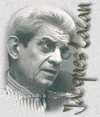
Lacan, Jacques (1901-1981)
French psychoanalyst who gained an international reputation as an interpreter of Sigmund Freud, claiming to have rediscovered the “real Freud”; much of his writing borders on the unreadable but has attracted wide interest due to his combination of structural linguistics with Freudian psychology and partly as a result of the view he developed of the centrality of the concept of Woman in Western society.
Graduating from the Faculté de Médecine de Paris in 1932, Lacan was a practicing psychiatrist in Paris for most of his life. As head of the Clinic at the Faculty, he introduced Freudian practices to France; gained widespread recognition through a series of seminars he held at the Univesity of Paris in 1953; in 1964, he founded the L’École Freudienne de Paris, but wound it up in 1980 because of its alleged failure to adhere strictly to Freudian principles.
He was influenced by Alexander Kojève’s lectures on Hegel in Paris and discussions with Sartre and Merleau-Ponty; he also translated Heidegger’s works into French, absorbing much of Heidegger’s views on language. Lacan emphasised the primacy of language as the mirror of the unconscious mind, and introduced the methods and concepts of structural linguistics (See Jakobson and Barthes) to psychoanalytic theory. As a result, he gained influence well beyond the field of psychoanalysis and became a cult-figure in France and more widely during the 1970s. In his psychoanalytic practice, Lacan was known for his unorthodox, even eccentric, therapeutic methods.
In one of his most famous studies, Lacan reinterpreted Freud’s study of an ‘hysterical’ woman, Dora, describing the structure of ‘hysterical discourse’, and in the latter part of his life, Lacan worked on developing a new notion of femininity which defied the process of symbolic identification which, according to Freud’s theory, hinged on “symbolic castration”. In different ways, Lacan exerted influence on the development of Althusser, Foucault and Derrida and his ideas have found their way into a wide variety of disciplines.
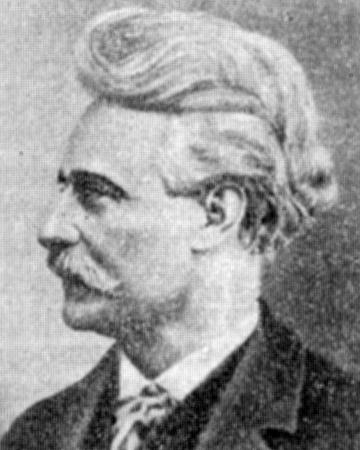
Lafargue, Paul (1841-1911)
Paul Lafargue was born in 1842 in Santiago, Cuba of mixed heritage. He moved with his family to France as a young boy where he studied medicine and first became involved in politics as a follower of Proudhon. It was while a representative of the French working class movement to the First International he became friendly with Marx and Engels and changed his views to those of Marx. Married in 1868 to Laura Marx, Marx’s second daughter, the Lafargue’s began several decades of political work together, financially supported by Engels.
Paul was one of the founders of the Marxist wing of the French Workers Party. From 1861 took part in the republican movement. In 1870-71 he carried on organisational and agitational work in Paris and Bordeaux; after the fall of the Commune he fled to Spain where he fought for the line of the General Council; they then settled in London. After the bloody May Day in Fourmis (1891) he was sentenced to a year’s imprisonment. Lafargue fought against reformism and Millerandism and was an advocate of women’s rights.
Lafargue was an influential speaker and wrote numerous works on revolutionary Marxism, including the humorous and well-known, "The Right to Be Lazy" and “Evolution and Property". By age 70, in 1911, the elderly couple commit suicide together, having decided they had nothing left to give to the movement to which they devoted their lives.
See also: Paul Lafargue Internet Archive
Lafargue, Charles Étienne (Schnappy) (1868-1872)
Son of Laura and Paul Lafargue.
Lafargue, Francois (-1870)
Father of Paul Lafargue.
Lafargue, Laura (1845-1911)
Karl Marx’s second daughter, wife of Paul Lafargue.
La Follette, Robert M. (1855-1925)
Republican U.S. senator from Wisconsin who ran for president in 1924 on the third-party Progressive ticket. The CP had captured a convention of the Farmer-Labor Party in 1923, changing its name to the Federated Farmer-Labor Party, but losing whatever labor support it had. The Ruthenberg -Pepper -Lovestone leadership of the CP then adopted the policy of linking the FFLP to La Follette’s third-party campaign for the presidency. There were enough misgivings about this policy in the CP leadership to get it submitted for review by the ECCI. The latter, after extensive discussion, declared the policy to be opportunist, and the CP pulled back from the La Follette candidacy, running its own ticket of Foster and Gitlow.
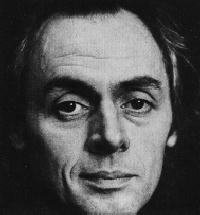
Laing, R D (1927-1989)
British psychiatrist famous for his treatment of schizophrenia, emphasising the relativity of experience. His writings on psychiatry reflect the influence of Kierkegaard, Dostoyevsky and the Existentialists such as Sartre.
Born into a working-class family in Glasgow, Laing earned a PhD in medicine and psychiatry from the University of Glasgow in 1951. After serving as a psychiatrist as a conscript in the British Army and teaching at the University of Glasgow (1953-56), he conducted research at the Tavistock Clinic and Institute of Human Relations for the remainder of life, while running a private practice in London. Founded the Institute of Phenomenological Studies in 1967.
In his first book, The Divided Self (1960), he proposed that people’s insecurity about their existence (“onotlogical insecurity”) may prompt a defensive reaction in which the self splits into separate components, generating the symptoms of schizophrenia. He opposed the standard treatments for schizophrenics of the time, which included electric shock “treatment”, holding that the origin of the schizophrenia lay in the family, as spelt out in his 1965 Sanity, Madness, and the Family, co-authored with Aaron Esterson. Removal of one family member as “mad”, would only force another member of the family into the same role.
Among his other works are The Politics of Experience (1967), in which madness is viewed as a form of transcendence of the normal state of alienation, and The Politics of the Family (1971). Laing’s early approach to schizophrenia was quite controversial, and he modified some of his positions in later years. His book Wisdom, Madness and Folly: The Making of a Psychiatrist, 1927-1957 (1985) was autobiographical.

La Mettrie, Julien Offray de (1709-1751)
French physician and philosopher, whose uncompromising materialism and atheism earned him exile and the public burning of his books. Born in the seaport town of Saint Malo, La Mettrie earned a medical degree and study of his own body’s action and reactions during an illness led him to the belief that psychic phenomena were the result of organic changes in the brain and nervous system. He outlined his theories in his first great book, “L’Histoire naturelle de l’ame,” (“The Natural History of the Soul”) which was publicly burned and whose publication forced him to flee Paris for Leiden. It was there that he published his chef d’ouevre, “L’Homme Machine” (“Man a Machine”), the most complete exposition of his materialism and atheism.
In 1748 he was forced to flee Holland and was welcomed by Frederick the Great to his court in Berlin. La Mettrie was a hedonist (a philosophy he laid out in works like “Discours sur le bonheur,” “La Volupté,” and “L’Art de Jouir”) as well as an atheist and materialist, and he died of after a banquet held in his honor at which he ate tainted food.
See La Mettrie Archive.
Landau, Kurt (-)
Left Oppositionist who had moved from Austria to Germany and was to become a leader of the German United Left Opposition when it was formed in 1930. He also served briefly as a member of the Provisional International Secretariat before splitting from the Left Opposition in 1931. He was assassinated by the Stalinists in Spain during the civil war.
Lane, Joseph (1851-1920)
19th century English anti-parliamentarist socialist agitator, a founding member of the Social Democratic Federation.
Lane was born in 1851 in the village of Benson near Wallingford, his father was a cordwainer and his mother was illiterate. Lane had virtually no education, and from an early age he worked on the land. At an early age he also developed an interest in radical politics. He later recalled that during the General Election of July 1865 he “attended all political meetings in Borough of Wallingford,” and questioned the successful Liberal candidate, Sir Charles Dilke, about the abolition of the Game Laws and the House of Lords.
Lane came to London soon where he witnessed the National Reform League demonstration in July 1866, when angry crowds broke into the park to establish the right of public meeting there an event which hastened the passage of the second Reform Bill, extending the vote to most working-class men in urban areas. In London, Lane worked as a carter, but he managed to fit an increasing amount of political activity into his spare time. During the early 1870s he seems to have been involved in the Land Tenure Reform Association led by the radical philosopher John Stuart Mill and in the republican campaign led by the radical politician Sir Charles Dilke. He was also later said to have belonged to an English section of the International Working Men’s Association and to have supported the Paris Commune in 1871, but this seems to derive from a misunderstanding of his later activities. There is no evidence that Lane began to move beyond radicalism before the end of the 1870s.
By 1880, however, Lane was involved in several working-class organisations in central London which played an important part in the transition from radicalism to socialism on the British left. The first organisation was formed as the Democratic and Trades Alliance Association in 1874, and became the Manhood Suffrage League in 1875. Its members included several old Chartists, and from 1874 to 1877 its secretary was Frank Kitz, a leading activist in radical, socialist and then anarchist politics for nearly half a century. Lane is first recorded taking part in the discussion in the meetings at the Queen’s Head in Little Pulteney Street in January 1879. The second organisation was the English Section of the Social Democratic Club, which was formed by Kitz in 1877 to link native radicals and foreign (mainly German) socialists living in exile in London, and which acquired its own premises in Rose Street. Its German Section was dominated by Johann Most, a former Socialist Deputy in the Reichstag who produced Die Freiheit, which began as a socialist weekly in 1879 but turned towards anarchism during 1880.
The third organisation was the Marylebone Radical Reform Association, which was formed in 1879. In January 1880 Lane took the lead in forming its third branch, which held meetings at the Black Horse in Marylebone High Street, near his place of work in Paddington Street. This branch soon moved to the left, and changed its name to the Marylebone Radical Association in April 1880. The fourth organisation was called the Local Rights Association for Promoting Rental and Sanitary Reform, and was actually a front for even more radical activity in 1880.
During the General Election of April 1880, which resulted in a landslide victory for the Liberal Party, Lane led the Marylebone radicals in pestering the two local Liberal candidates with traditional radical demands for Irish Home Rule, nationalisation of the land, and abolition of the House of Lords.
The Marylebone radicals rejected a Conservative offer to pay for a radical candidate to split the Liberal vote. But a former Conservative called H.M. Hyndman did offer himself as an independent candidate, with a programme of liberalism at home and imperialism abroad, and he tried to get radical support too. Lane refused, later recalling that “I told him it was only a waste of time.” But when Gladstone’s new Liberal Government soon disappointed radical hopes, some of his comrades continued discussions with Hyndman, and the result was the formation in June 1881 of the Democratic Federation, a coalition of middle-class and working-class radicals under Hyndman’s leadership, working towards an independent labour party with a policy inspired by Marx.
Lane was involved in the beginning of this process, but soon turned to other activity. In March 1881 he was involved in the Freiheit Defence Committee, which was formed when Most was arrested for welcoming the assassination of the Tsar in Die Freiheit. As well as raising public support for press freedom and arranging a legal defence for Most (who got sixteen months’ hard labour), the committee produced seven issues of an English Freiheit from April to June, edited by Kitz and published by the English section of the Social Democratic Club. At the same time Lane was involved in producing and distributing The Radical, a leftist weekly produced by Frank Soutter and Samuel Bennett from 1880 to 1882.
Early in 1881, Lane moved to East London, where he spent the rest of his life. He first settled in Hackney, forming a new club, which was called the Socialistic Working Men’s Association in May, the Homerton Section of the Social Democratic Club in June, and the Homerton Social Democratic Club in July. Its original affiliation was with the Rose Street Club, which supplied it with some literature, but it soon became independent. From the start it was unequivocally socialist, and Lane practised the same politics as he preached. He acquired a printing press to produce his own literature, pasting up posters all over the area.
The Homerton club held meetings on Sunday evenings at the Lamb and Flag in Homerton High Street, until they were closed down by the police at the beginning of 1882.
Lane was one of two delegates sent by the Homerton Social Democratic Club to the Anarchist International Congress in London in 1881. Private meetings were held at a public house in Charrington Street, Somers Town, during the third week in July; and a large public meeting was held at the Cleveland Town Hall on 18 July. Although the six English delegates were not anarchists, most of the forty foreign ones were, and Lane recalled that he met “Kropotkin, Malatesta, etc.” The Congress confirmed the policy of propaganda by deed, following the repression of socialist propaganda by any other method throughout Continental Europe, and tried to re-establish a socialist international. The English delegates were not reported to have said much in the proceedings.
When the Homerton Club was silenced, Lane widened his aim to cover the whole East End. He joined a group led by Kitz in organising open-air meetings at Mile End, agitating about housing conditions in the slums, intervening in various meetings and demonstrations with provocative leaflets and banners. They caused a sensation by bringing a banner defending tyrannicide to the Hyde Park mass assembly against Irish Coercion in July 1882. The sensation must have been sharpened by the fact that the banner was a quotation from The Revolutionary Epick, written in 1834 by other than Disraeli, the Conservative leader who had died in 1881. In 1882 Kitz and Lane joined Ambrose Barker and Tom Lemon of the Stratford Dialectical and Radical Club in forming the Labour Emancipation League, based at Mile End and Bethnal Green, which soon became the most important working-class organisation in the growing socialist movement. Its programme included six traditional radical points (adult suffrage and secret ballot; direct legislation by referendum; abolition of standing army; free secular education; freedom of speech, press and assembly; free administration of justice) and two definitely socialist ones (equalisation of wealth; socialisation of production). When the first secretary, Aaron Moseley, resigned Lane took over and established himself as the most effective socialist organiser in London. His old organisation was not completely superseded by the Labour Emancipation League. It continued to exist as the Homerton Socialist Club, and Lane was one of its two signatories to the Manifesto to the Working Men of the World, an unsuccessful appeal for the re-establishment of the International Working Men’s Association which was issued by the London socialist organisations in July 1883.
Lane never achieved much of a reputation as a writer or a speaker. Most of his writings were anonymous ephemera. In 1887 William Morris wrote that “his obvious earnestness and good faith make him a convincing speaker,” but the Daily News described him as “a humble sort of man” who “dropped his h’s recklessly.” His real gift was for the organisation of agitation and propaganda, and it was in 1882 that this really bore fruit. Lane later recalled:
“This my mode of operations. Take a room, pay quarter’s rent in advance, then arrange list of lecturers for the three months, then get bills printed, one for each week, then each week paste up bills in streets all around. By the end of the three or six months I had got a few members and got them to take it over and manage it as a branch. I had generally two or three branches on my hands at once.”
Such branches quickly spread in East London, and the Labour Emancipation League extended its activities into Central and West London, bringing socialist ideas into the open at both indoor and outdoor meetings, and breaking into national politics. Meanwhile the coalition of the Democratic Federation had begun to break up. In 1882 it turned towards socialism, and in 1883 it adopted an openly socialist programme. In January 1884, it began publishing Justice, the first socialist weekly in Britain, and began working more and more closely with the Labour Emancipation League. Lane helped to distribute Justice, and agreed to arrange for delegates from the Labour Emancipation League to attend the annual conference of the Democratic Federation with a view to affiliation.
In August 1884, the Democratic Federation changed its name to the Social Democratic Federation, and adopted most of the programme and absorbed most of the leadership of the Labour Emancipation League. Lane was elected to the new Executive Council, and immediately joined the opposition to Hyndman’s authoritarian leadership, becoming a member of the caucus round Morris. The new coalition lasted only a few months, and by the end of the year the Social Democratic Federation split into an authoritarian minority led by Hyndman and an anti-authoritarian majority led by Morris. In December 1884, the majority seceded rather than expel the minority, and formed a new organisation called the Socialist League.
Lane signed both the statement explaining the split, To Socialists, and the Manifesto of the Socialist League, and he joined the Council of the new organisation. He brought with him most of the membership of the Labour Emancipation League, and also his printing press. He became the manager and joint publisher (with Morris) of the Socialist League paper, The Commonweal, and was also an occasional contributor from the first issue. He remained a leading figure in the Socialist League for four years, but he was often unhappy in it, resigning after personal differences temporarily from the Council in 1885 and permanently from the League itself in 1889.
The Socialist League was itself yet another coalition, united at first mainly by hostility to Hyndman, and it soon developed parliamentarist and anti-parliamentarist fractions, “which are pretty commensurate with the Collectivists and Anarchists,” said Morris, who tried to hold the balance between them. At the first annual conference in July 1885, a draft parliamentarist constitution inspired by Engels was rejected, and abstinence from electoral activity was confirmed. (The Social Democratic Federation put up two candidates in the General Election of November 1885, paid for by Conservative money to split the Liberal vote. The Socialist League produced a leaflet, For Whom Shall We Vote?, concluding: “Do not vote at all!”) At the second annual conference in July 1886, the anti-parliamentarist policy was reaffirmed, but the parliamentarist fraction but factional fighting continued. Lane presented an anti-parliamentarist manifesto to the 1887 annual conference, but the Council decided not to print either of the “rival manifestoes,” as Morris called them, commenting privately that Lane’s was “a long lecture not at all fit for its purpose.”
Lane therefore arranged to print his draft on his own responsibility. He got some support from Morris, who helped to pay for the printing, and also from Morris’s old friends Charles Faulkner and Philip Webb, and circularised the branches of the Socialist League. In the event the third annual conference in May 1887 rejected both manifestoes in favour of Morris’s “shelving resolution,” which repeated the original anti-parliamentarist policy and postponed the decision for another year. Lane published his manifesto in June, calling it An Anti-Statist Communist Manifesto.
Lane never returned to the socialist movement, but he kept in touch with some of his old comrades. He moved to Forest Gate, and during the decade before the First World War he produced occasional political leaflets. He died suddenly on 3 September 1920.
Lange, Friedrich Albert (1828-75)
A German scientist and political writer. In the labour movement he showed himself a conciliator. Author of the well-known book, The Labour Question: Its Significance for the Present and Future. Also the author of a History of Materialism, of which Plekhanov said that it had "contributed a great deal, not towards the criticism of materialism but towards spreading and strengthening among the public a wrong view of the historical development of materialism and of its importance for modern social science." (Plekhanov’s preface to the Russian translation of The Communist Manifesto.) Marx said of Lange in a letter to Engels (March 11, 1865): " Siebel has sent me Lange’s pamphlet. Confused; Malthusianism mixed with Darwinian; flirts with all sides–but there are some nice things against Lassalle and the bourgeois consumers’ co-operative fellows."
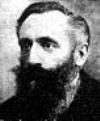
Lanti, Eugene (1879-1947)
Born Eugene Adam (his pseudonym comes from the French “L’Anti,” the Anti) in Normandy, his family moved to Paris when he was still a child. He discovered Esperanto, the international language, during World War I, and was an early supporter of the Bolshevik Revolution.
After the war he joined the Labor Esperanto Movement, but his hatred of nationalism in any form led him to found the Sennacieco Asocio Tutmonda (World Non-National Movement), dedicated to the liberation of the working class, the eradication of national boundaries, and the use of Esperanto as a means in this struggle. Lanti was also instrumental in establishing the anationalist tendency in SAT, anationalism being a radical anti-nationalist doctrine on world citizenship, which strictly rejects participation in national struggles on the part of the proletariat.
A founding member of the French Communist Party, he left it after several disillusioning trips to the USSR and meetings with Soviet Esperantists. Never a Trotskyist, he was close to groups like the Spanish POUM.
Suffering from an incurable illness, he committed suicide in 1947.
See Eugene Lanti Archive.

Lao Tzu (~600-~450 BCE)
A Taoist philosopher. Lao Tzu is not a proper name, but is a honorific title meaning "Old Master", though can also be rendered as "Old Child". Lao Tzu's real name was Li Erh Tan (surname, personal name, public name), and he was a historian of the imperial archives in the state of Ch'u.
The oldest surviving biography of Lao Tzu can be found in the annals of one of China's greatest historians: Ssu-ma Ch'ien, written nearly 400 years after Lao Tzu died. From him we know that Lao Tzu was born in the state of Ch'u (presently eastern Honan Province). He writes about Lao Tzu's meeting with the philosopher Confucious (K'ung Fu-tzu) — two individuals who represented philosophies that would dominate Chinese culture and society for over 2,000 years. Ssu-ma Ch'ien explained:
"When K'ung Fu-tzu went to Ch'u, he asked Lao Tzu to tutor him in the rites. Lao Tzu replied, "The very bones of those you talk about have turned to dust. All that remains of them is their words. You know that when a noble lives in times which are good, he travels to court in a carriage. But when times are difficult, he goes where the wind blows. Some say that a wise mechant hides his wealth and thus seems poor. Likewise the sage, if he has great internal virtue, seems on the outside to be a fool. Stop being so arrogant — all these demands — your self-importance and your overkeen enthusiasm -- none of this is true to yourself. That is all I have to say to you."
K'ung left and said to this followers, "I know that a bird can fly; that fishes swim; that animals can run. Things that run can be trapped in nets. What can swim can be caught in traps. Those that fly can be shot down with arrows. But what to do with the dragon, I do not know. It rises on the clouds and the wind. Today I have met Lao Tzu, and he is like the dragon."
Ssu-ma Ch'ien later explains that Lao-tzu, having lived in Ch'u and practiced his philosophy for decades, left due to rampant corruption throughout the society. When he reached the border, the gatekeeper asked Lao Tzu to explain his philosophy, and this he reportedly did, in two sections with five thousand characters in a book called the Tao Te Ching. He was never again seen, and it would be some 300 years until Taoism became a major philosophical force throughout China.
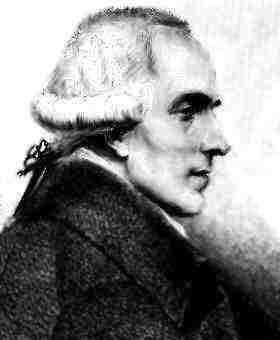
Laplace, Pierre Simon de (1749-1827)
French scientist, mathematician and astronomer; established mathematically the stability of the Solar system and its origin from a gaseous nebula - without divine intervention. Established some of the basic principles of the Theory of Probability, but gave his name also to the proof that the entire history of the Universe is determined by knowledge of the exact position and momentum of every particle in it at any given time - absolute Determinism.
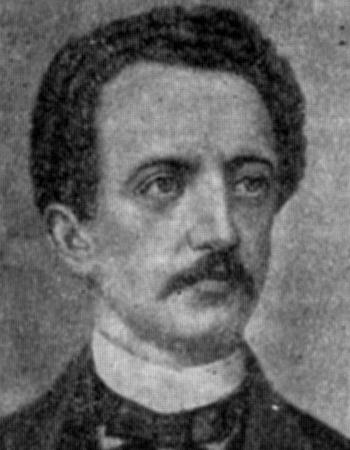
Lassalle, Ferdinand (1825 - 1864)
Took part in French Revolution of 1848. Created the Democratic Socialist Party in Germany. In 1862 proposed a theory (Lassalleanism) in opposiiton to Marxism, explaining that while bourgeois society "guaranteed" all individuals unlimited development of their individual productive forces the moral idea of the proletariat is to render useful service to the community.
Lassalle wrote the Science and the Working Man:
"The course of history, is a struggle against nature, against ignorance and impotence, and consequently, against slavery and bondage of every kind in which we were held under the law of nature at the beginning of history. The progressive overcoming of this impotence is the evolution of liberty, of which history is an account. In this struggle humanity would never have made one step in advance, and men gone into the struggle singly, each for himself. The state is the contemplated unity and co-operation of individuals in a moral whole, whose function it is to carry on this struggle, a combination which multiplies a million-fold the forces of all the individuals comprised in it, and which heightens a million times the powers which each individual would be able to exert singly."
Lassalle believed that the proletariat represented community, solidarity of interest, and reciprocity of interest. He believed therefore that the cause of the workers is the cause of humanity; when the proletariat gains political supremecy a higher degree of morality, culture and science would occur which would further civilisation.
Lassalle believed in the State as Hegel did, as the organ of right and justice. He believed that only through the State could victory be gained, explaining the state as "the union of indivudals which increases a million-fold the forces of the individuals." He explained that "The aim of the State is the education and development of liberty in the human race." He believed that the State would hear the cause of the proletariat, and so revolution was not necessary.
Killed in a duel by the Wallachian Count von Racowitza on August 31, 1864.
His works included:
Die Philosophie Herakleitos des Kunkeln (1858)
Das System der erworbenen Rechte (1861)
Lashevich, Mikhail (1884-1928)
Mikhail Lashevich was born in Odessa in 1884. He became involved in politics while still a student and in 1901 joined the Social Democratic Labour Party. He later joined the Bolshevik faction.
Conscripted into the Russian Army during the First World War, he was twice wounded before returning to Petrograd after the abdication of Nicholas II. Lashevich was active in the Petrograd Soviet and helped plan the capture of the Winter Palace and the overthrow of the Provisional Government.
During the Civil War Lashevich was a senior commander in the Red Army and contributed to the defeat of Kolchak, Denikin and Yudenich.
In 1923 Lashevich was elected to Central Committee of the Communist Party, but he was critical of Stalin and was sent to Harbin to act as chairman of the Chinese Eastern Railway.
Lashevich committed suicide in August, 1928.
Laski, Harold Joseph (1893-1950)
Prominent British left-wing political theorist and academic. A leading member of the Fabian Society, he joined the National Executive Committee of the Labour Party in 1936, and chaired the party during 1945-46. He was appointed Professor of Political Science at the London School of Economics in 1926, and was a prolific writer on political topics.
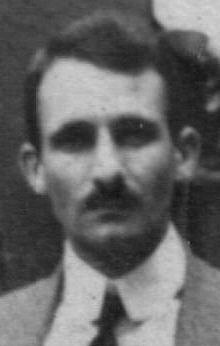
Laurat, Lucien (1898-1973)
Austrian Communist, correspondent of l'Humanité in Berlin then in Moscow, returned to Paris in 1927, adhering to the Democratic Communist Circle (1930) then joined the SFIO (1933). He collaborated with Souvarine and Combat marxiste, and worked at the CGT's Workers University (1932-39). Joined the Bataille socialiste, sometimes playing an important part in the development of CGT strategy. Combat marxiste was anti-Stalinist, denouncing “the harmfulness of the Bolshevism, which has become the branch of a bureaucratic-police dictatorship.” In the post-war period, Laurat remained with the SFIO and in the circle of the close collaborators of Souvarine.
See Marxism and Democracy, 1940.
Lavrov, Pyotr (1823-1900)
Developed the Russian Populist theory of peasant movements and edited the clandestine journal Vperyod (Forward) for the Russian underground. Author of Historical Letters, of the Essay on the History of Thought, and of works dealing with the Paris Commune and the question of the State. Died in Paris.
Law, Andrew Ronar (1858-1923)
Born in Canada; began his career as an iron merchant in Glasgow. MP from 1900 and Tory leader 1911-21 and 1922-3. Particularly active in support of army mutinies in opposition to Irish Home Rule before 1914. Despite retiring in 1921 he was made Prime Minister in the 1922 Tory government, but finally resigned and died in 1923. Succeeded by Stanley Baldwin.
Law, Harriet (1832-1897)
English atheist leader. Member of First International.
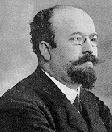
Lazare, Bernard (1865-1903)
French Jewish Anarchist who made a study of the origins of antisemitism and promoted of a policy of complete assimilation of Jews.
Supporting the innocence of Dreyfus from the beginning, Lazare became a tireless defender of persecuted Jews all across Europe, and it his said that his early death at the age of 38 was a result of exhaustion.